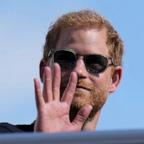Country Profile: Chad
— -- Chad has substantial wealth in natural resources but its persistent internal strife, conflicts with neighboring Libya, and unstable governments have left Chad among the world's poorest countries.
Located in north central Africa, Chad is neighbored to the west by Cameroon, Nigeria and Niger. It is bounded on the north by Libya and on the east by Sudan and by the Central African Republic to its south. Its capital is N'Djamena, situated on its border with Cameroon.
Chad was under the dominion of several Islamic kingdoms from the 11th century until the early 1900s. In 1910, France took control of the region and established the French Equatorial Federation, which was made up of four main territories, Chad, Gabon, Middle Congo (now the Republic of Congo), and Ubangi-Shari (now the Central African Republic). The four territories gained their independence in 1960.
Chad's post-colonial history has been marked by ongoing tensions and guerrilla warfare between Arab-Muslim communities in the north and non-Muslim black populations in the south. About 40 percent of the population is Muslim; about a third of Chadians are Christian, and just over a quarter of the population follows traditional religions of the region.
The tenure of Chad's first president, Ngarta Tombalbaye, a Bantu Christian from southern Chad, was marred by north-south tensions that eventually erupted into guerrilla war. Unable to quell the fighting and address extraordinary hardships brought on by drought, Tombalbaye's administration was toppled and he was killed in coup led by Felix Malloum.
The civil war also engulfed the administration of Malloum, another southern Christian. With the backing of Libya, northerner Goukouki Oueddei succeeded Malloum in 1979. By 1982, however, Oueddi was forced from power by Hissen Habre, and continued the southerners' conflict with the Muslim north. Habre received assistance from France in the struggle.
A stalemate persisted between Ouedda, who had formed a rival government in the north, and Habre until 1990, when Libyan-backed Idriss Deby led a successful coup.




